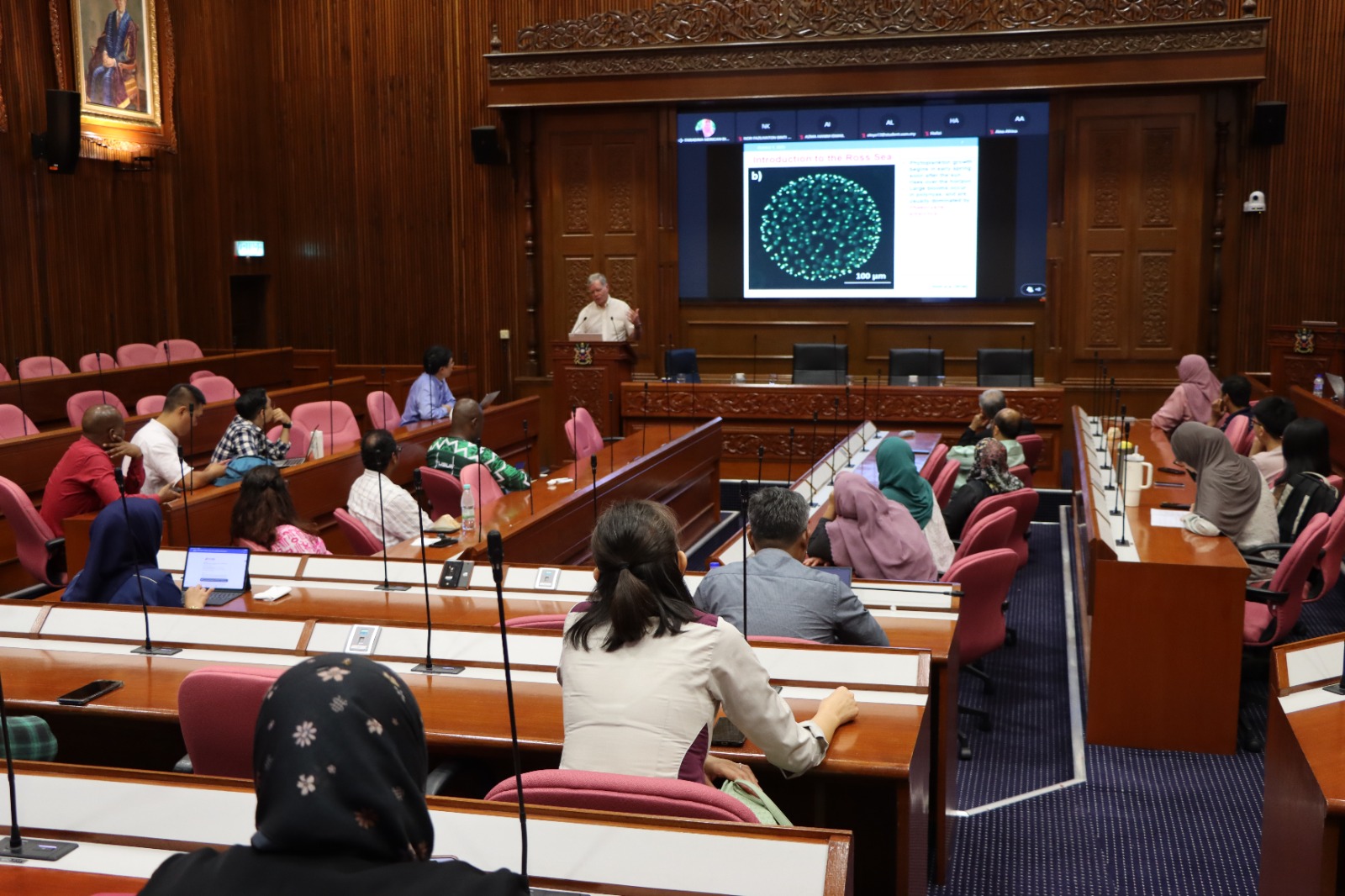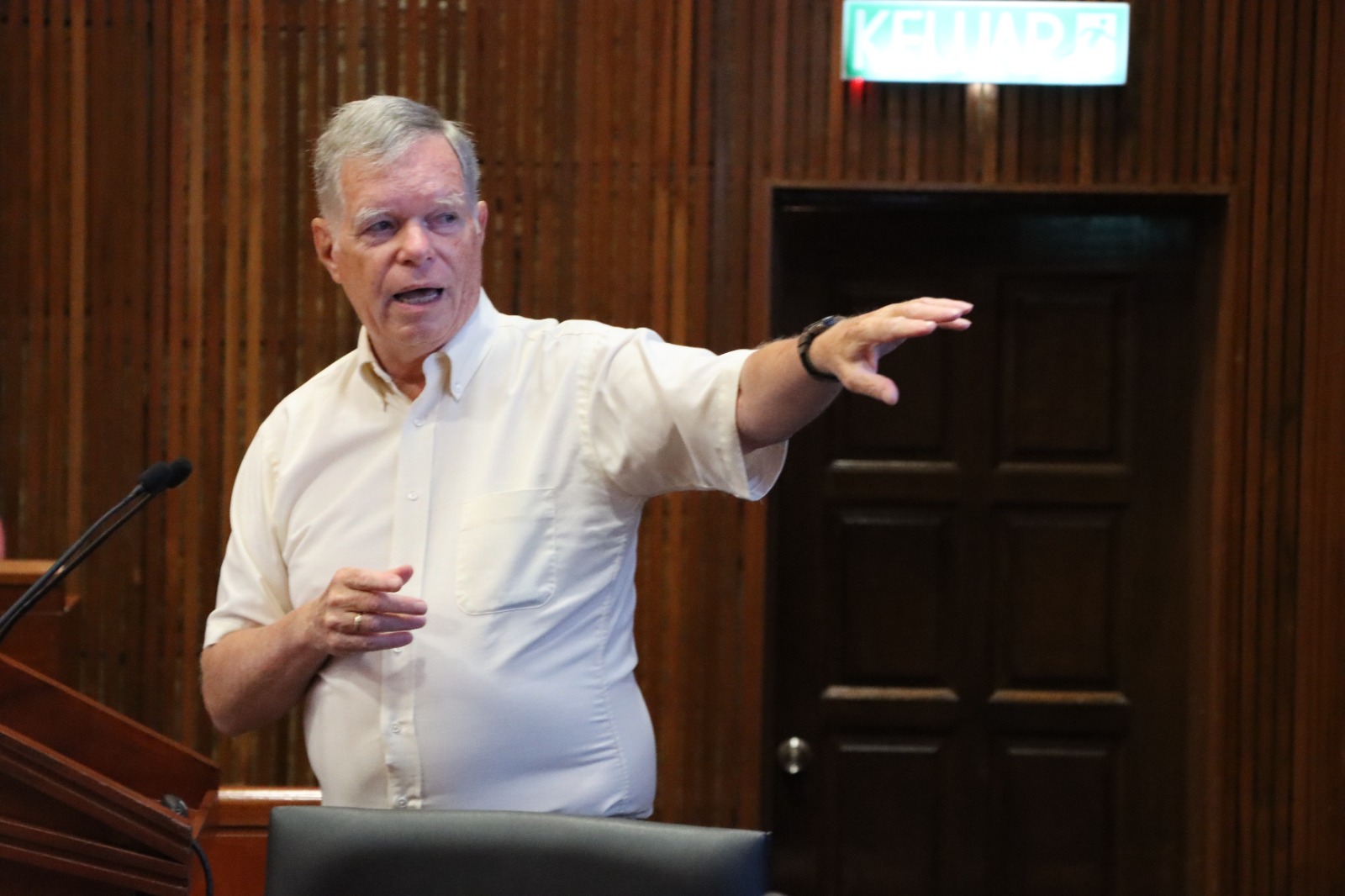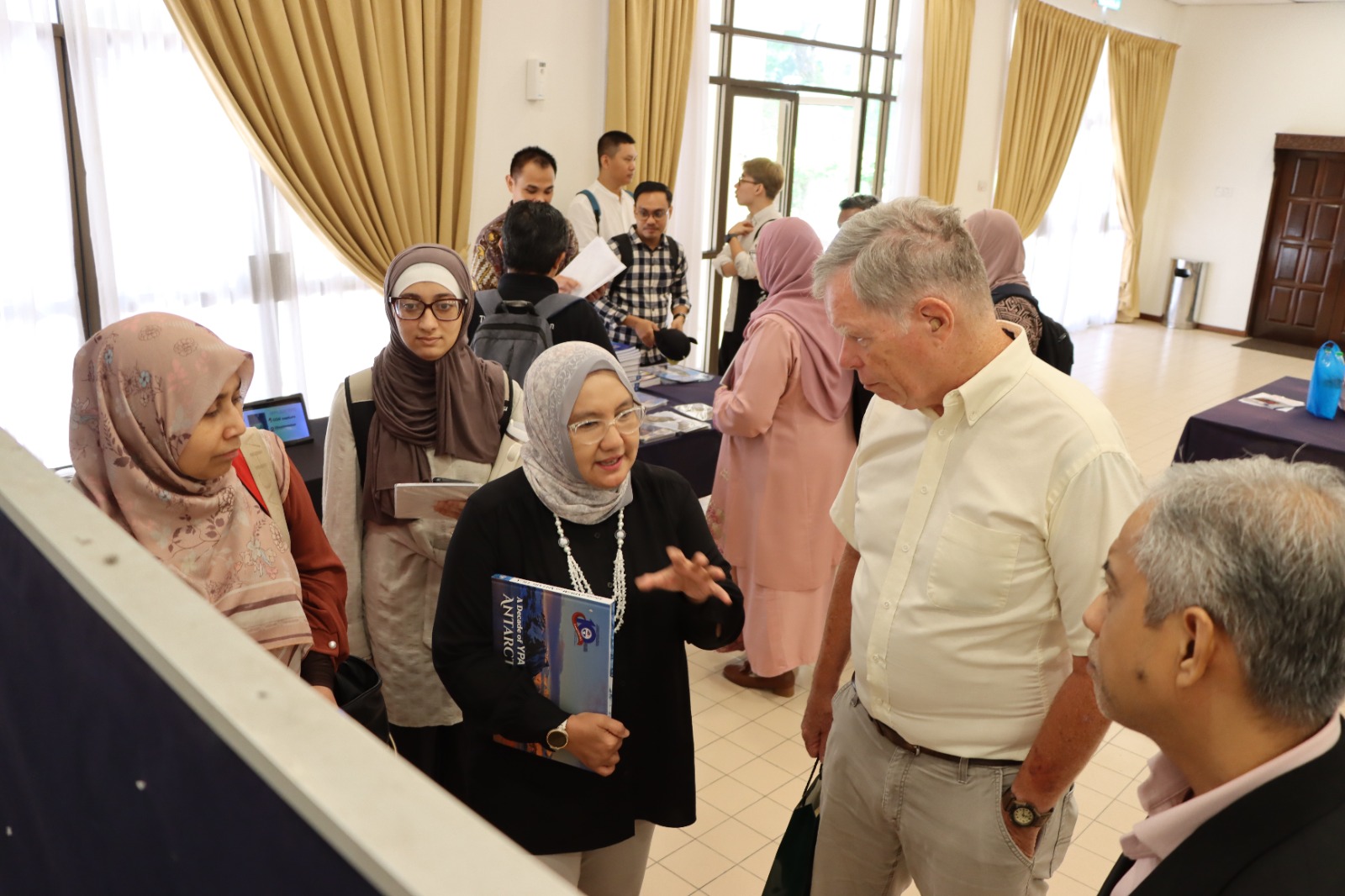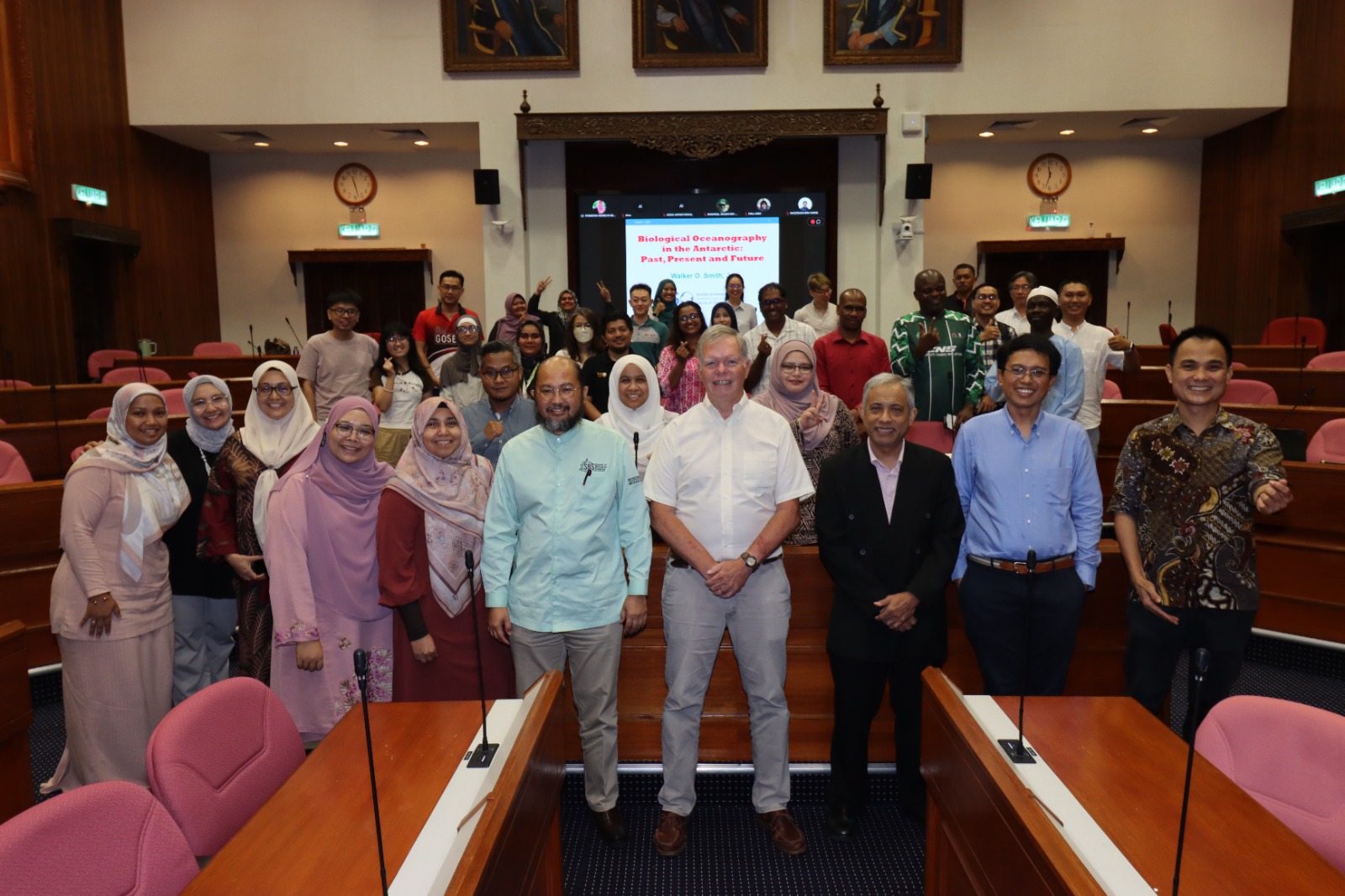POLAR@USM DISTINGUISHED LECTURE EXPLORES ANTARCTIC ECOSYSTEM DYNAMICS AND GLOBAL CLIMATE FEEDBACKS

Polar@USM warmly invites researchers and interested parties to join its growing community.
Together, let’s explore the vast potential of polar science and contribute to a more sustainable and climate-resilient future.
USM PENANG, 6 October 2025 – Polar@USM, under the School of Biological Sciences, Universiti Sains Malaysia (USM), successfully hosted the Polar@USM Distinguished Lecture featuring Professor Walker Orson Smith Jr., the Chair Professor of the School of Oceanography Shanghai Jiao Tong University on 1 October 2025 at the Dewan Persidangan Universiti.
His lecture entitled, “From Phytoplankton to Feedback Loops: Antarctic Ecosystem Dynamics in a Changing Climate,” captivated the 55 participants who attended both in-person and online, among which were researchers, academic staff, and postgraduate students eager to explore the dynamic world of polar science.

Professor Smith, a globally-renowned Antarctic marine ecologist with over four decades of experience, shared his extensive research on phytoplankton productivity, sea-ice biogeochemistry, and carbon cycling in the Southern Ocean.
His talk revealed how this remote ocean, though covering only 6% of the global ocean surface area, removes up to 40% of atmospheric carbon dioxide thus regulating global temperatures.
The scientific discussion showcased the Ross Sea, one of the most intensively studied Antarctic regions.
Professor Smith described how phytoplankton blooms dominated by Phaeocystis antarctica emerge in early spring as sunlight returns, followed by diatom dominance later in the season.

He presented new evidence suggesting that phytoplankton growth may have begun much earlier than previously thought.
It was discovered that phytoplankton growth occurred almost immediately after the sun rises above the horizon in mid-August. These findings reshape our understanding of Antarctic primary productivity and its role in carbon sequestration.
A major theme of the lecture was the use of innovative technologies such as autonomous gliders, Argo profiling floats, and remote sensors, which now enable continuous, high-resolution data collection even under extreme winter ice conditions.
These tools not only enhance scientific accuracy but also reduce the carbon footprint of Antarctic research by minimizing ship-based operations. This opens more opportunities for interdisciplinary polar research efforts in the future.
The lecture also explored potential collaborations with China’s Antarctic research community, paving the way for joint studies and berth support.
These opportunities are expected to strengthen Malaysia’s participation in global polar research and reinforce USM’s role in advancing international scientific cooperation.

For postgraduate students, this session served as an inspiration to venture into polar science, an exciting and emerging field that connects environmental research with global sustainability priorities.
The discussions and insights shared directly support several United Nations Sustainable Development Goals (SDGs), including Quality Education (SDG 4) through capacity building, Climate Action (SDG 13) through understanding climate–polar linkages, Life Below Water (SDG 14) and Life on Land (SDG 15) through conservation efforts, and Partnerships for the Goals (SDG 17) through fostering global research collaboration.
Polar@USM members are represented by researchers from various fields comprising biology to industrial technology, engineering, physics, and education.
This diversity enriches the a href="mailto:Polar@USM’s&uot; ">"olar@USM’s ability to address complex environmental challenges and promote innovative, cross-disciplinary solutions.
Polar@USM warmly invites researchers and interested parties to join its growing community.
Together, let’s explore the vast potential of polar science and contribute to a more sustainable and climate-resilient future.
Text & Photo: Dr. Faradina Merican Mohd. Sidik Merican, Polar@USM Cluster Head, School of Biological Sciences, USM
SDG4, SDG13, SDG14, SDG15, SDG17
- Created on .
- Hits: 283
